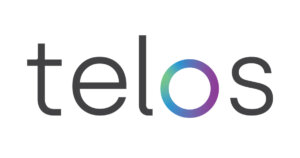 Central bank of Canada considering launch of its own digital currency to enforce KYC and monetary controls
Central bank of Canada considering launch of its own digital currency to enforce KYC and monetary controls Central bank of Canada considering launch of its own digital currency to enforce KYC and monetary controls

Cover art/illustration via CryptoSlate. Image includes combined content which may include AI-generated content.
The central bank of Canada is considering launching a sovereign digital currency that would eventually replace cash and combat the “direct threat” cryptocurrencies pose to monetary controls, The Logic reported.
The plan bears a striking similarity to that of the People’s Bank of China (PBOC), who in August said it was preparing to launch a state-backed digital currency in a bid to better track the transactions of its 1.3+ billion citizens, consolidate its grip on monetary policy, and stave off cryptocurrencies.
In a similar vein to the PBOC, the Bank of Canada said it would ease the digital currency into circulation at first but that ultimately it would replace physical cash—which could become “too costly” to circulate in the coming years, according to an internal presentation made by the bank.
Canada’s central bank claimed the project is still in the research stage, however, and the plan is yet to be given the green light.
Crypto is spreading, and central banks are taking action
Canada joins an ever-growing list of nations that have unveiled premeditated sovereign digital currencies—their hands seemingly forced as cryptocurrency teeters on the brink of global adoption.
The Bank of Canada, which began researching digital currencies in 2013 according to the Financial Post, said in its latest presentation cryptocurrencies could become a “direct threat” to its “ability to implement monetary policy and lender of last resort (LOLR) role.”
Central banks have stressed the importance of maintaining monetary controls in discussing their digital currency plans, while the motivation of tracking citizens’ transactions has, perhaps strategically, remained a quieter narrative. Just weeks ago, the U.K.’s Financial Conduct Authority announced it would be enforcing AML regulations on crypto exchanges, ATMs, and open-source applications like wallets—a dramatic move that would bring banking-style controls to crypto in the nation.
As such, the Bank of Canada noted that its prospective digital currency would be more traceable than cash, allowing police and tax authorities to have access to Canadians’ transaction records.
















































